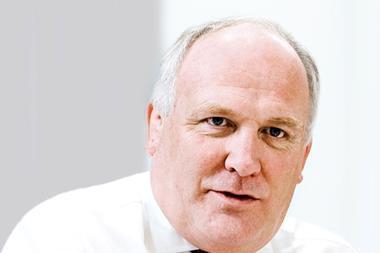Ian Coull reflects on the lessons learned from two property conferences.
A couple of months ago I received invitations to two full-day conferences being held on the same day. Like British Airways, I decided to overbook so accepted them both on the assumption that one would fall out before the due date.
Neither did collapse so I found myself last week attending the House Builders Federation conference in the morning and then the PWC debt conference in the afternoon.
Both were excellent and very well attended, but after the events I was reflecting on messages and lessons learned. The conferences were at diametrically opposite ends of the economic cycle. The HBF presentations were incredibly upbeat, even by the politicians, and that general mood was shared big style by the delegates.
The positive message from the Budget about the extension of Help to Buy until 2020 was one of the reasons but there were lots of other positive pointers about the UK housing market. And so the big issue being addressed was how to accelerate the recovering market to get new-build homes up to 200,000 units per year from a low of under 100,000 only a couple of years ago.
There were some negatives: supply chain costs and availability; interest rate rises and a stuttering economic recovery, but these were massively outweighed by the positives.
Facing up to reality
In the afternoon, I listened to a variety of top notch European speakers wondering how much longer it will be before all the distressed assets in European banks are written down to their true values.
The consensus seemed to be that the UK had faced up to reality earlier than other countries and as a result was ahead of most other major European economies. On the other hand, manyEuropean banks had not fully addressed the stress testing that must be done and so are still facing major write-downs and distressed sales in the next few years.
Many in the audience were relishing the story as they were the ones with the deep pockets and the know-how and were looking forward to getting their hands on some of these assets at knock-down prices.
So the mood was not entirely gloomy.
All in all, these were two relatively positive experiences for me, but I then wondered what the day would have been like if the two conferences had been conflated. The mood would probably have been very gloomy.
The main players in the housebuilding meeting would still be in the financial mire with assets sitting on their balance sheets at numbers way below their true value.
The investors wanting distressed investments would be realising that the upturn had come and gone, and they had missed the bottom of the market, so there were no more really cheap deals to be picked up. So, we have two groups of players in similar sectors but with a massive difference in outlook. I suppose that is typical of the markets in which we all operate and it has been the case for most of the last few decades — joy and sadness in equal measure presumably leads to a balanced market.
Those readers who are feeling down because their assets are not looking too good at the moment, or the loan-to-value ratios have not yet turned positive — don’t panic too much as the good times may just be around the corner.
But those happy readers who are feeling a bit smug as they have ridden the storm of the past five years with great confidence — beware, as things can turn very quickly. We are seeing economic and political problems growing in the emerging markets and as a result, capital is pouring back into mature markets and into hard assets and equities, but as we have seen over the past five years, capital is more fickle than ever these days so sentiments will change and very rapidly.
For me, the big lesson of this recession — and I have been through a few — is that the pace of change once the top and the bottom of the market has been hit is much faster than ever before. At the end of 2008, following the demise of Lehman Brothers, values in the UK fell by circa 20% in one quarter. And in the last year we have seen buyers rushing back into the market for UK logistics warehouses, UK regional offices and now Spanish real estate as soon as there was a hint of a recovery in that sector.
I am bullish in a bearish sort of way about the near term.
Is that allowed?
Ian Coull is an independent consultant and a non-executive chairman of Galliford Try





























No comments yet